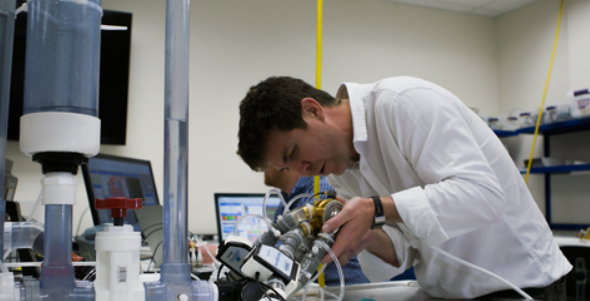
The Texas Heart Institute (THI) and BiVACOR, a clinical-stage medical device company, announced the successful first-in-human implantation of the BiVACOR Total Artificial Heart (TAH) as part of the U.S. Food and Drug Administration (FDA) Early Feasibility Study (EFS). The successful implantation of BiVACOR’s TAH highlights the potential of innovative technologies to address critical challenges in cardiac care, such as long transplantation waitlists.
BiVACOR’s TAH is a titanium-constructed biventricular rotary blood pump with a single moving part that utilizes a magnetically levitated rotor that pumps the blood and replaces both ventricles of a failing heart. Using magnetic levitation technology, the same principle used in high-speed trains, the product features a unique pump design with a single moving part: a magnetically suspended dual-sided rotor with left and right vanes positioned within two separate pump chambers, forming a double-sided centrifugal impeller that propels blood from the respective pump chambers to the pulmonary (lung) and systemic (body) circulations. The TAH has no valves or flexing ventricle chambers, with MAGLEV making pulsatile outflow possible by rapidly cycling the pump's rotor. The non-contact suspension of the rotor via MAGLEV is designed to eliminate the potential for mechanical wear and provide large blood gaps that minimize blood trauma, offering a durable, reliable, and biocompatible heart replacement.
The first-in-human clinical study aims to evaluate the safety and performance of the BiVACOR TAH as a bridge-to-transplant solution for patients with severe biventricular heart failure or univentricular heart failure in which left ventricular assist device support is not recommended. Following this first implantation completed at Baylor St. Luke’s Medical Center in the Texas Medical Center, four additional patients are to be enrolled in the study.